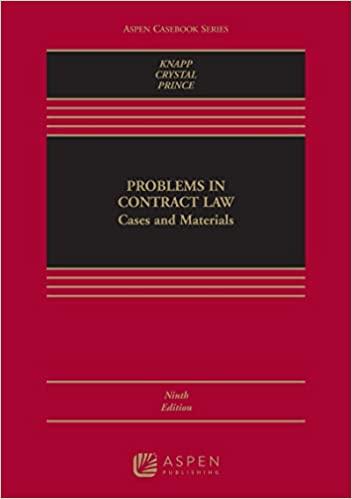Question
At the outset of a highly-publicized trial of a graduate student who shot and killed six people and wounded 12 others in the student union
At the outset of a highly-publicized trial of a graduate student who shot and killed six people and wounded 12 others in the student union in Madison, Wisconsin, Judge William Bolt issued the following order:
"I have heard too many remarks on television and read too many comments in the newspapers from persons associated with the case. Therefore, I am today ordering all lawyers, law officers, witnesses and other participants not to initiate any contact with the mass media, not to answer any questions posed by the mass media, and not to say anything in public about any aspect of the matters to be litigated in this trial. Anyone violating this order will be subject to contempt proceedings, which may include a substantial fine or even jail time."
Lawyers for the defendant and the press challenged this order, arguing that Judge Bolt's order violated the provisions of the test for restrictive orders laid down by the Supreme Court in Nebraska Press Association v. Stuart. They asked the Wisconsin Court of Appeals to void the order.
- What are the provisions of the Nebraska Press Association test for restrictive orders?
- Does this test apply to this order? Why, or why not?
- Is Judge Bolt's order valid? Why, or why not?
Step by Step Solution
There are 3 Steps involved in it
Step: 1

Get Instant Access to Expert-Tailored Solutions
See step-by-step solutions with expert insights and AI powered tools for academic success
Step: 2

Step: 3

Ace Your Homework with AI
Get the answers you need in no time with our AI-driven, step-by-step assistance
Get Started


